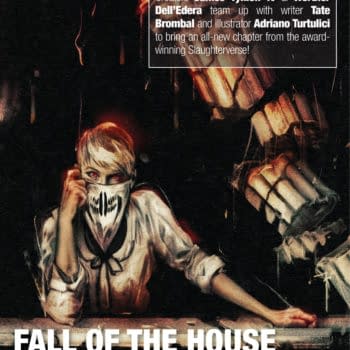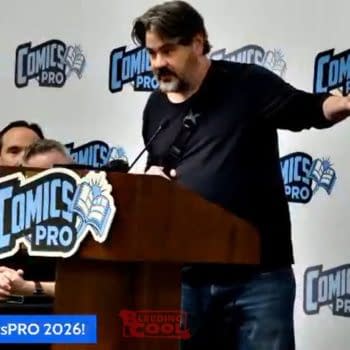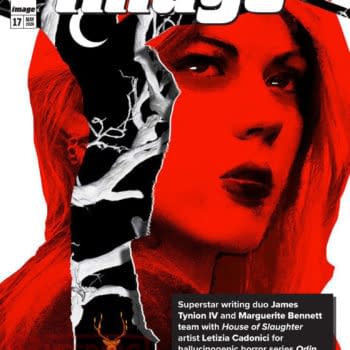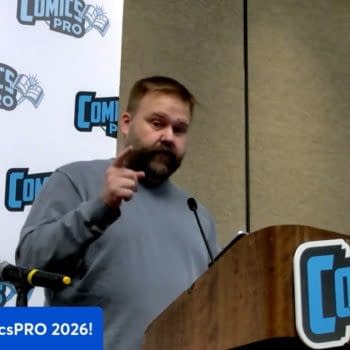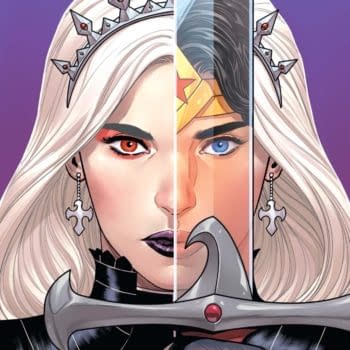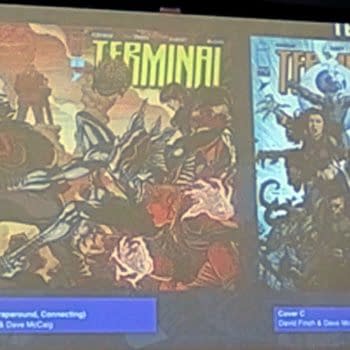Posted in: Comics | Tagged:
DC Comics Hires Real-Life Psychoanalyst for Batman, Superman, Wonder Woman, Harley Quinn, and Booster Gold
This is John Foster Elliot. He is a screenwriter, musician, fantasy author, self-help author and psychoanalyst. And he has been hired by DC Comics for today's DC Nation #4 to psychoanalyse Batman, Superman, Wonder Woman, Harley Quinn, and Booster Gold to run alongside the Heroes in Crisis series by Tom King and Clay Mann. So what crises do these fictional characters suffer from?
SUPERMAN:
PSYCHOTHERAPY ASSESSMENT: Many who have been adopted tend to experience an "attachment disorder." Intimacy is blocked by behavioral patterns because of a fear of loss. In this manner, Clark has compensated for the original injury by creating the Superman persona to protect himself from the underlying insecurity he has always had unconsciously. Having to suppress strength and sensory input on a consistent basis takes its toll emotionally and physiologically. To be aware that one is so different, so alien, again causes a disconnection.
NOTES: Axis I ICD F4325 Adjustment disorder with mixed disturbance of emotions and conduct, F444 Conversion disorder with motor symptoms or deficit attachment disorder
BATMAN:
MEDICAL ASSESSMENT: The death of Bruce's parents was the trigger for his compensatory behavior in becoming a "superhero." His repressed grief led to the defense mechanism of reaction formation; his pain turned into anger and aggression. His continual denial of his emotional vulnerability and dependency needs are leading to further alienation. He pushes away any who may show him compassion and empathy. Bruce also has an extremely difficult time deferring to any authority. He can be a team player, as long as he is leading the team. Otherwise, he plays an outsider or lone-wolf role.
NOTES: Axis I ICD 10 F331 Major depressive disorder, recurrent, moderate F42 Obsessive-compulsive disorder, Dissociative traits
WONDER WOMAN:
PSYCHOTHERAPY ASSESSMENT: Diana has suffered major losses in her life and will continue to do so, being a demigod. Her human companions will age and die on her. Yet upon meeting her brother, Jason, she had a companion with whom she could pass the eons. And now she has lost him as well. This has brought up every other death she's experienced, and she is grieving ALL of them. Diana is currently isolating herself from all her connections. She will have to go through the process of denial, bargaining, depression, anger and acceptance, which will be difficult for her.
NOTES: Axis I ICD F4321 Adjustment disorder with depressed mood (complicated bereavement)
BOOSTER GOLD:
PSYCHOTHERAPY ASSESSMENT: Michael suffers from generalized anxiety, the "poser" syndrome, mainly because he is…just that. He has little respect for the law or the rights of others and believes that he is entitled to act because the end justifies the means. Yet he still has compassion for others and seeks to redeem himself, primarily through shortcuts that often fail. Michael needs to work on his morality, respecting the rights of others and accepting his limitations. Like most narcissists, he operates on double standards and is truly afraid of genuine intimacy.
NOTES: Axis I ICD F411 Sociopathic and narcissistic traits
HARVEY QUINN:
PSYCHOTHERAPY ASSESSMENT: Harleen experienced the ultimate "Stock-holm syndrome" upon encountering The Joker at Arkham Asylum. The fact that she was susceptible to his psychological manipulations implies a pre-existing disorder. Some join cults, some become religious fanatics because they want the illusions of security that these entities are selling. Harleen joined The Joker, convincing herself that he was in some way infallible. She still needs to work on her autonomy, her self-direction and her sense of values. I believe something in her early life helped her connect with The Joker
NOTES: Axis I ICD F259 Schizoaffective disorder unspecified, in remission.







